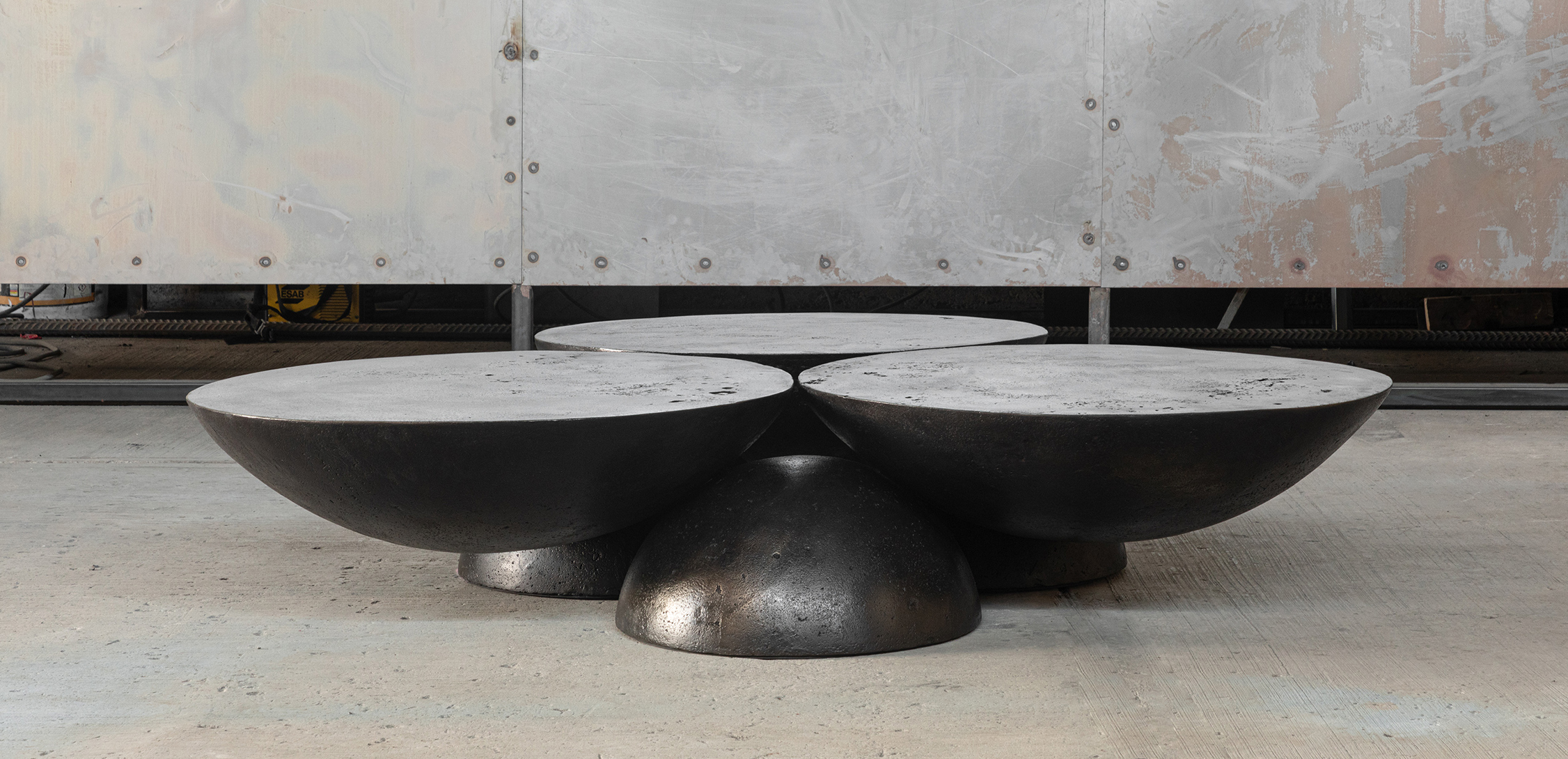

The table is created of six semi spheres which were carved in volcanic stone, native to a quarry area that is located near Mexico City, known for its characteristic porosity. The semi spheres where in turn casted into bronze, leaving all the characteristics of the stone on the Copal Coffee Table surfaces.
SINCRETISMO
2022
SAND CASTED
PATINATED BRONZE
L59 1/16 x W55 1/8 x H11 13/16 in
L150 x W140 x H30 cm
LIMITED EDITION OF 10 + 2 AP
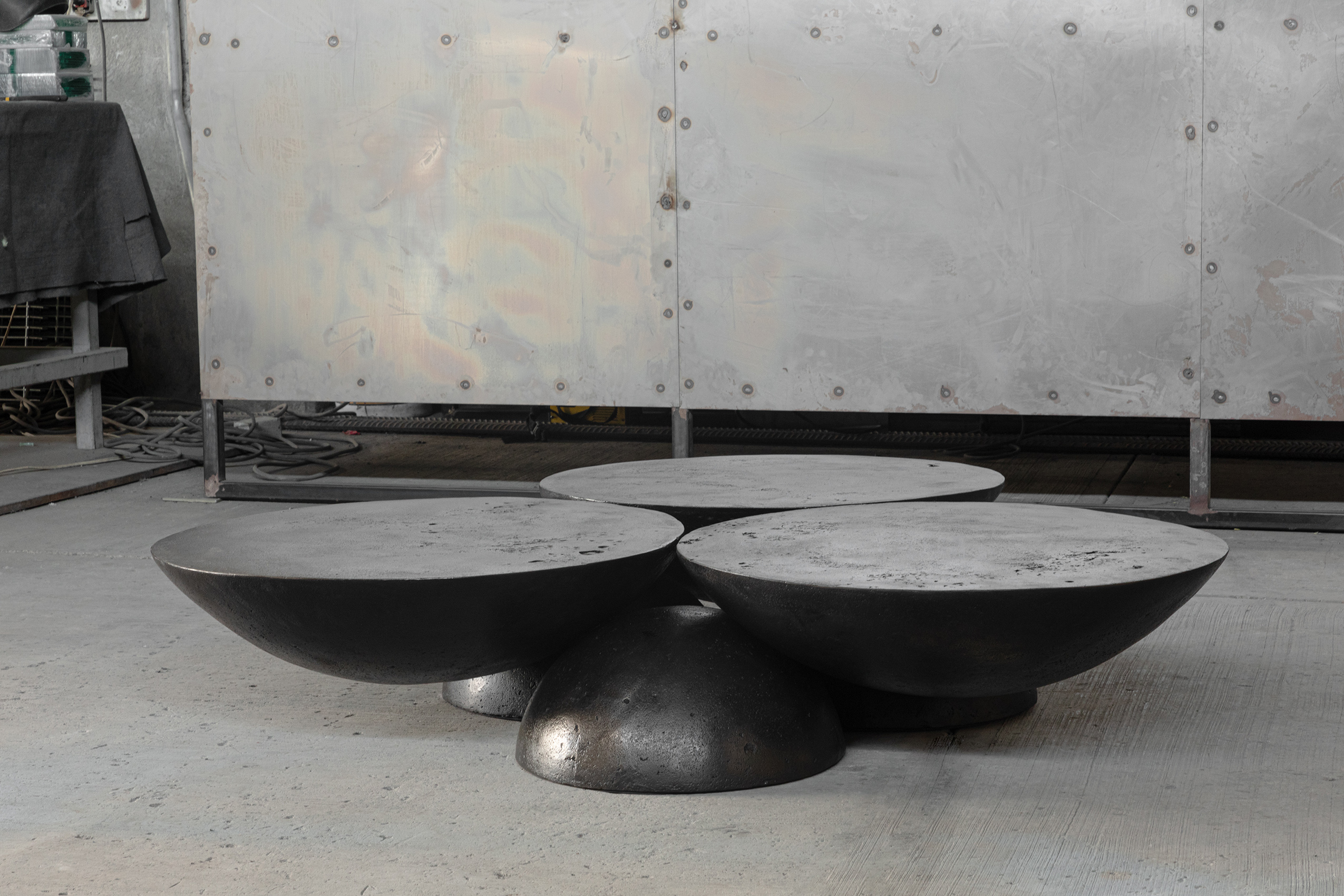
The table stands out for the technical complexity and stability, as the upper big spheres are seemingly hovering in the air, resulting in a magnificent visual tension that defies gravity on its cantilever. By understanding the tangential connections of its parts and hidden elements, which are assembled together in a perfect equilibrium. Its striking and simple expression creates a sense of purity and balance in a mystical and profound way.
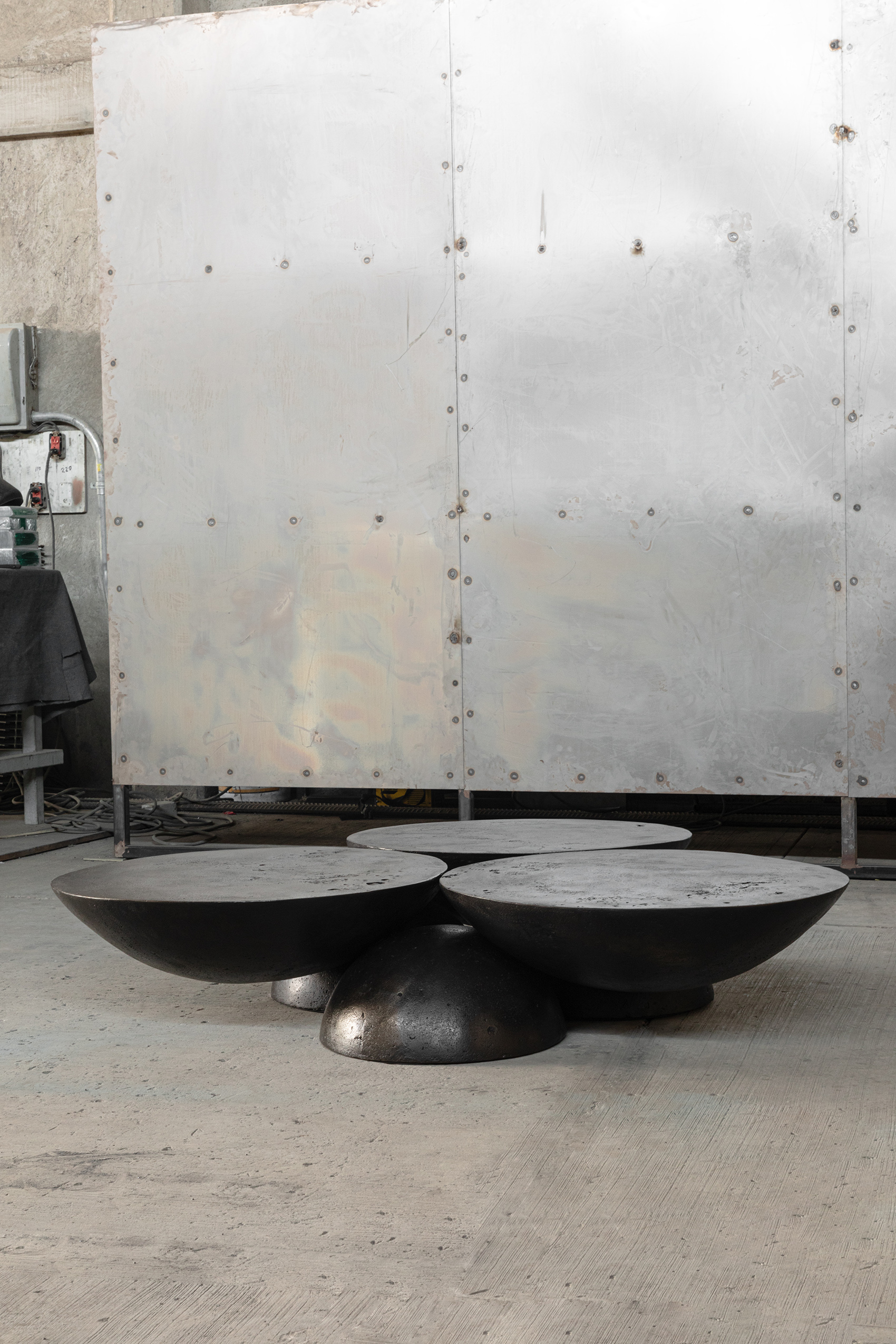
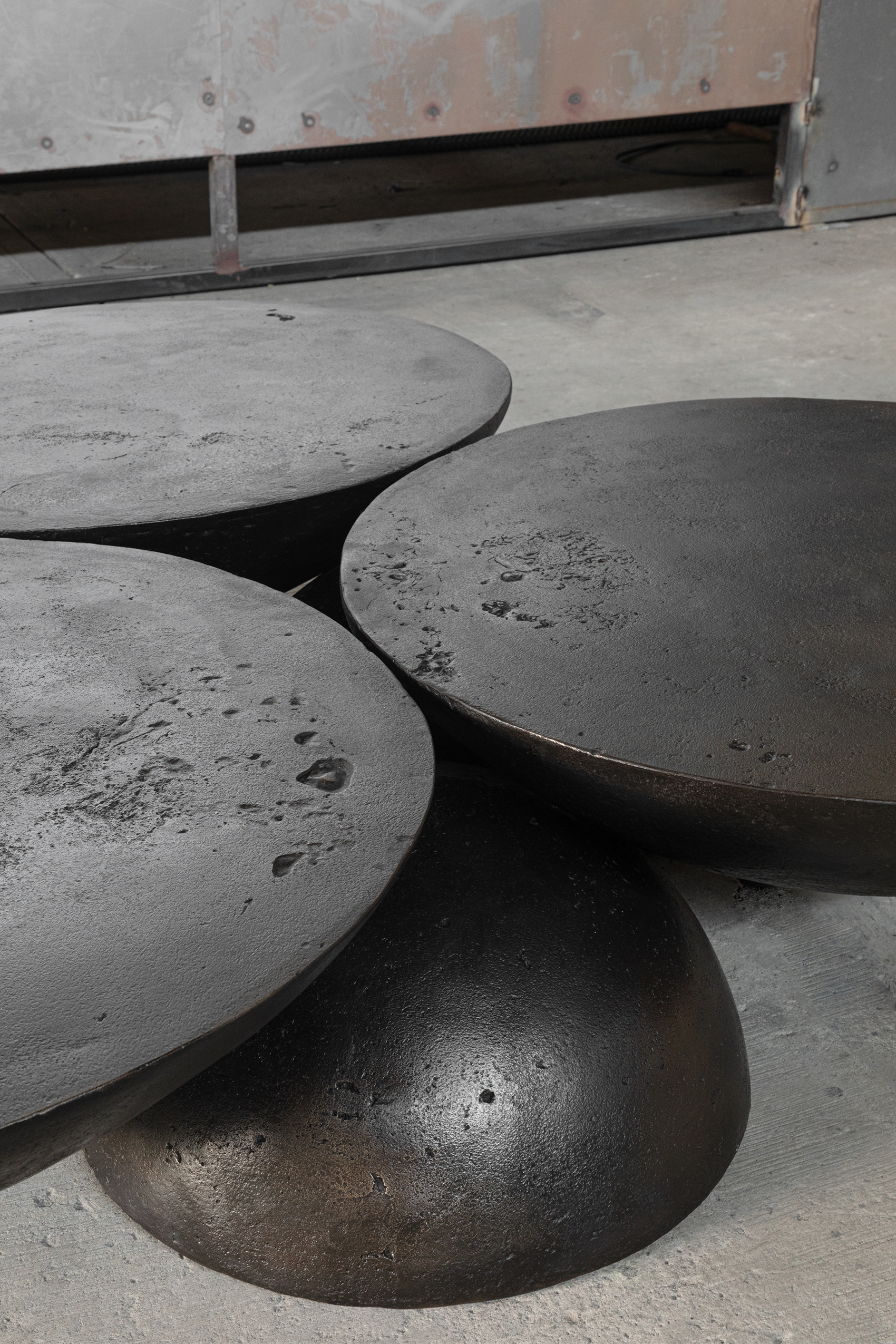
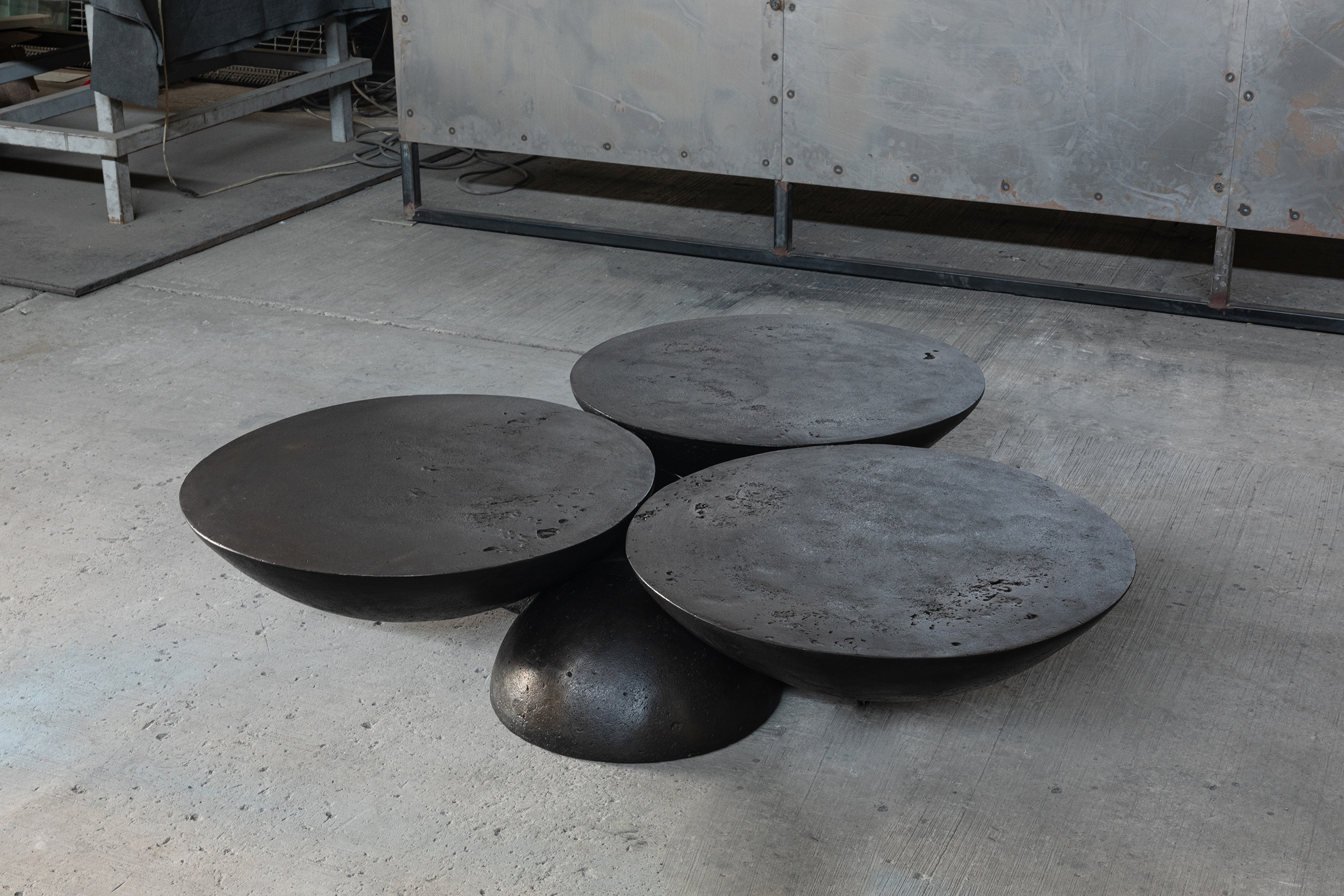
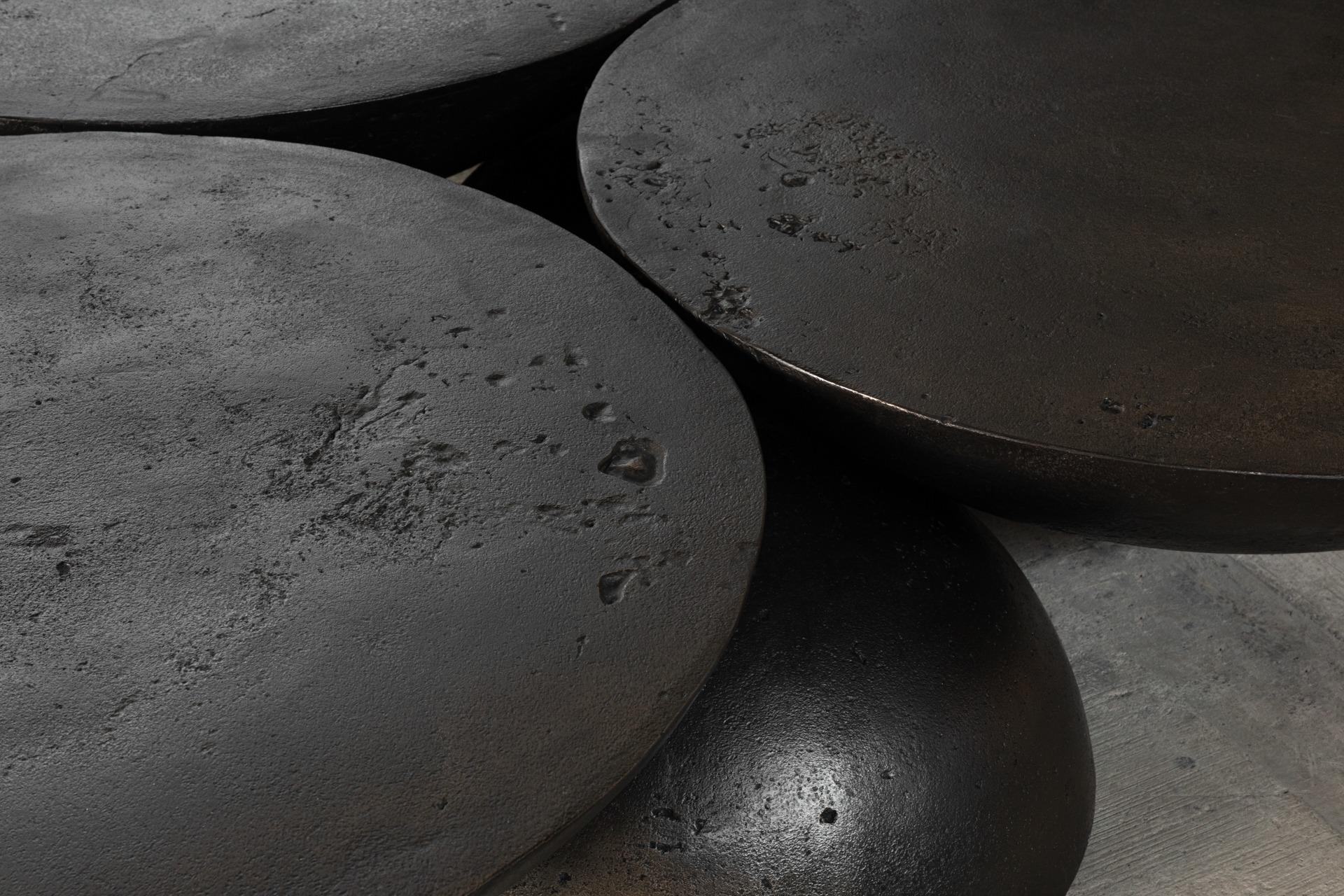
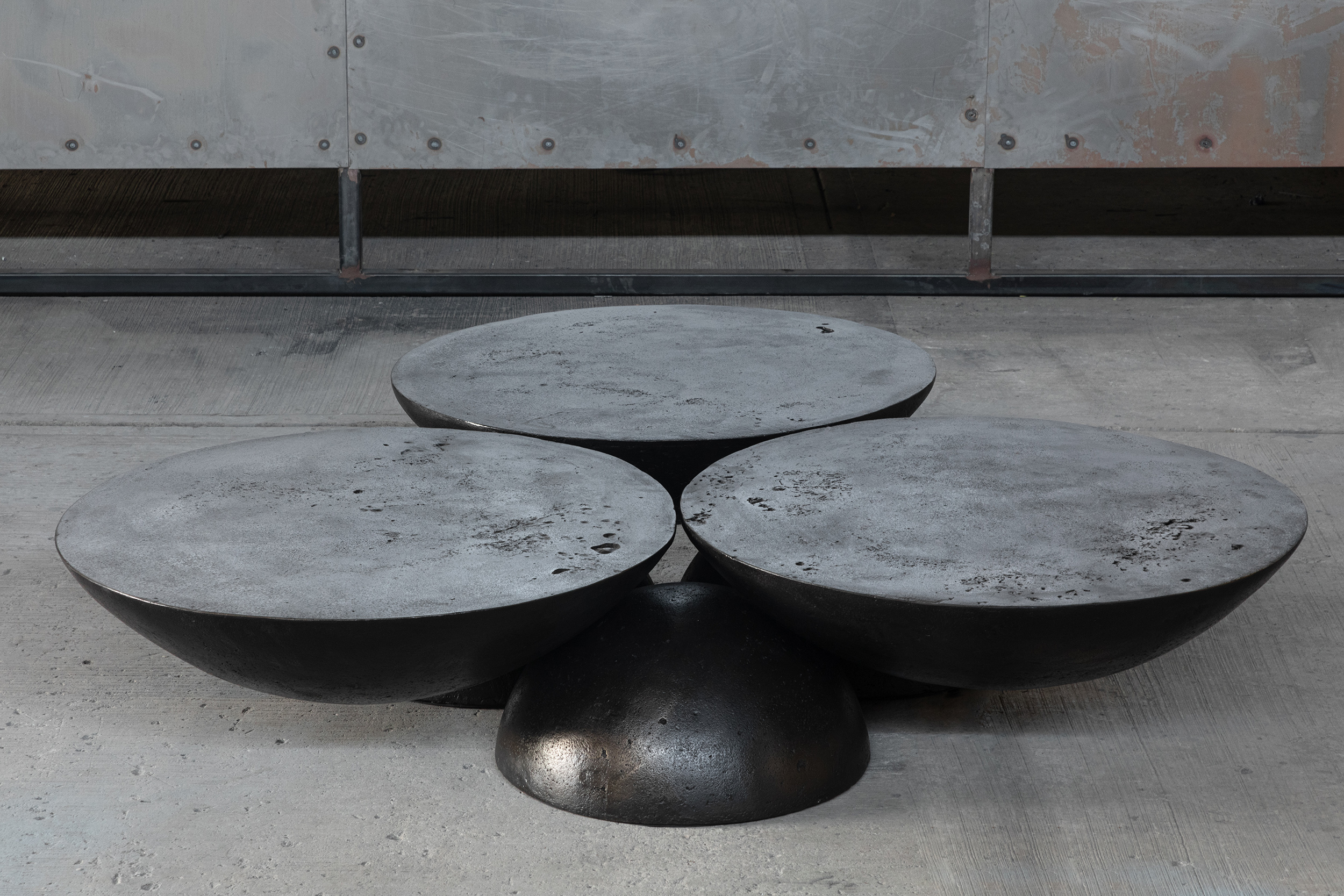
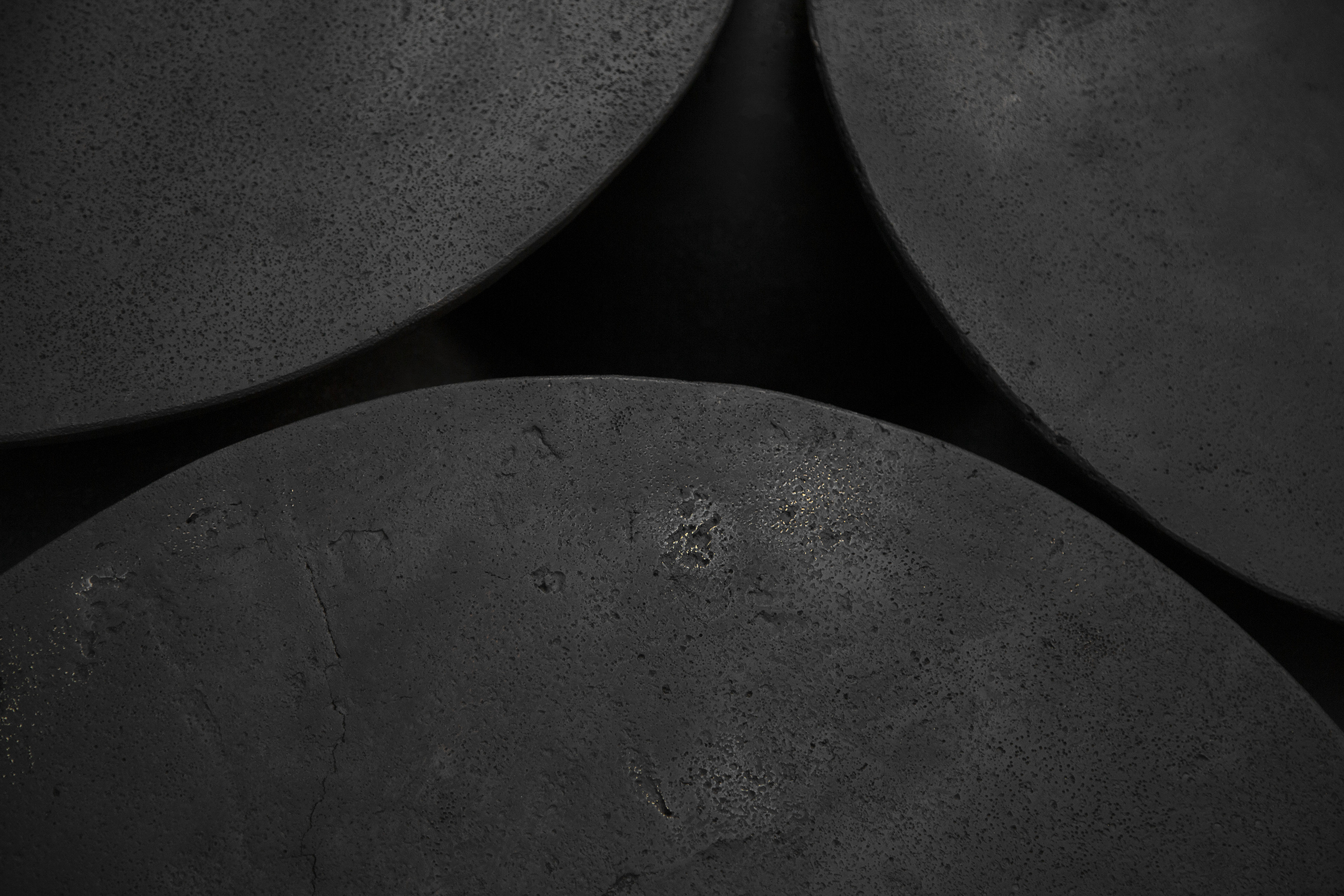
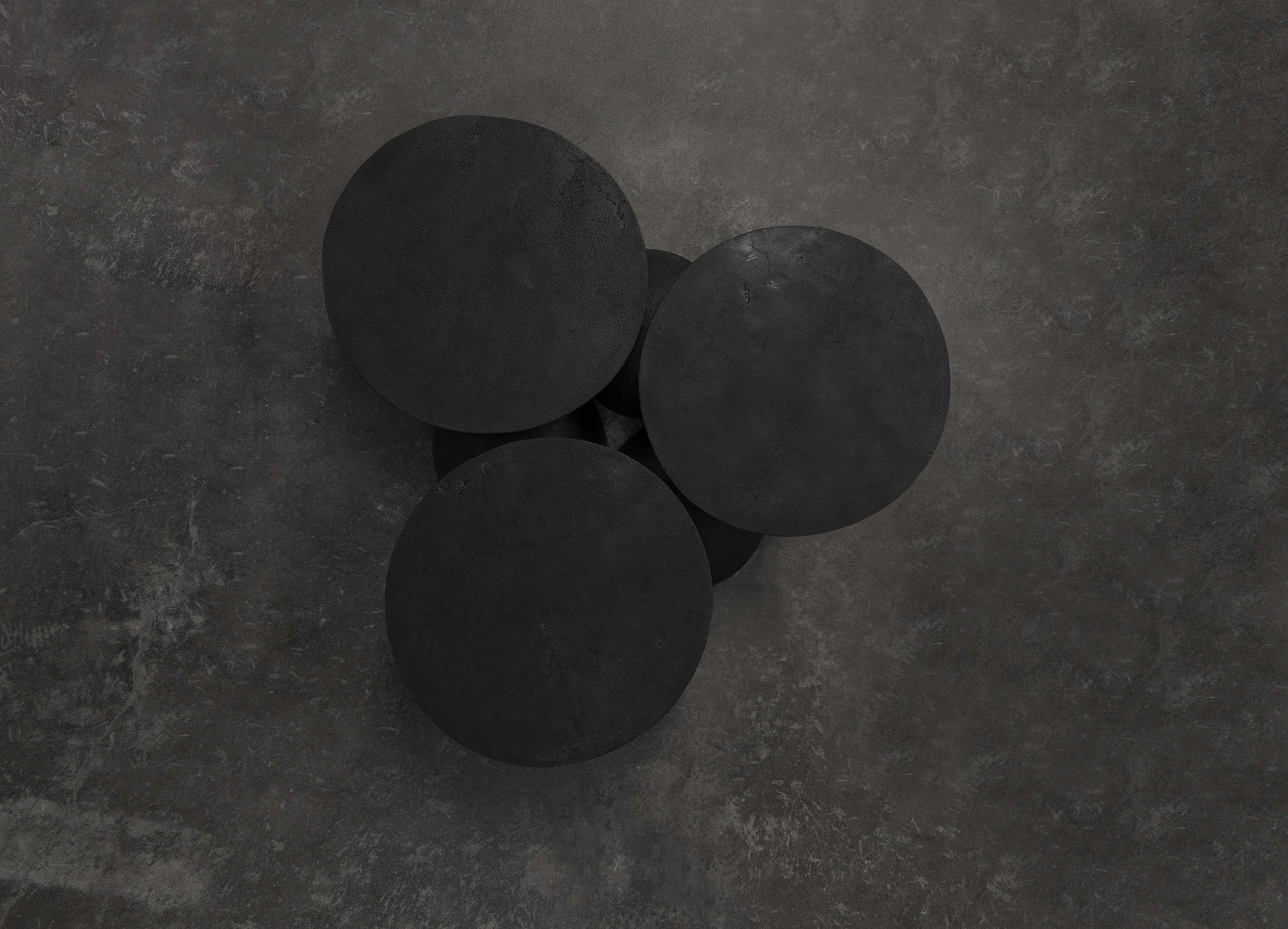
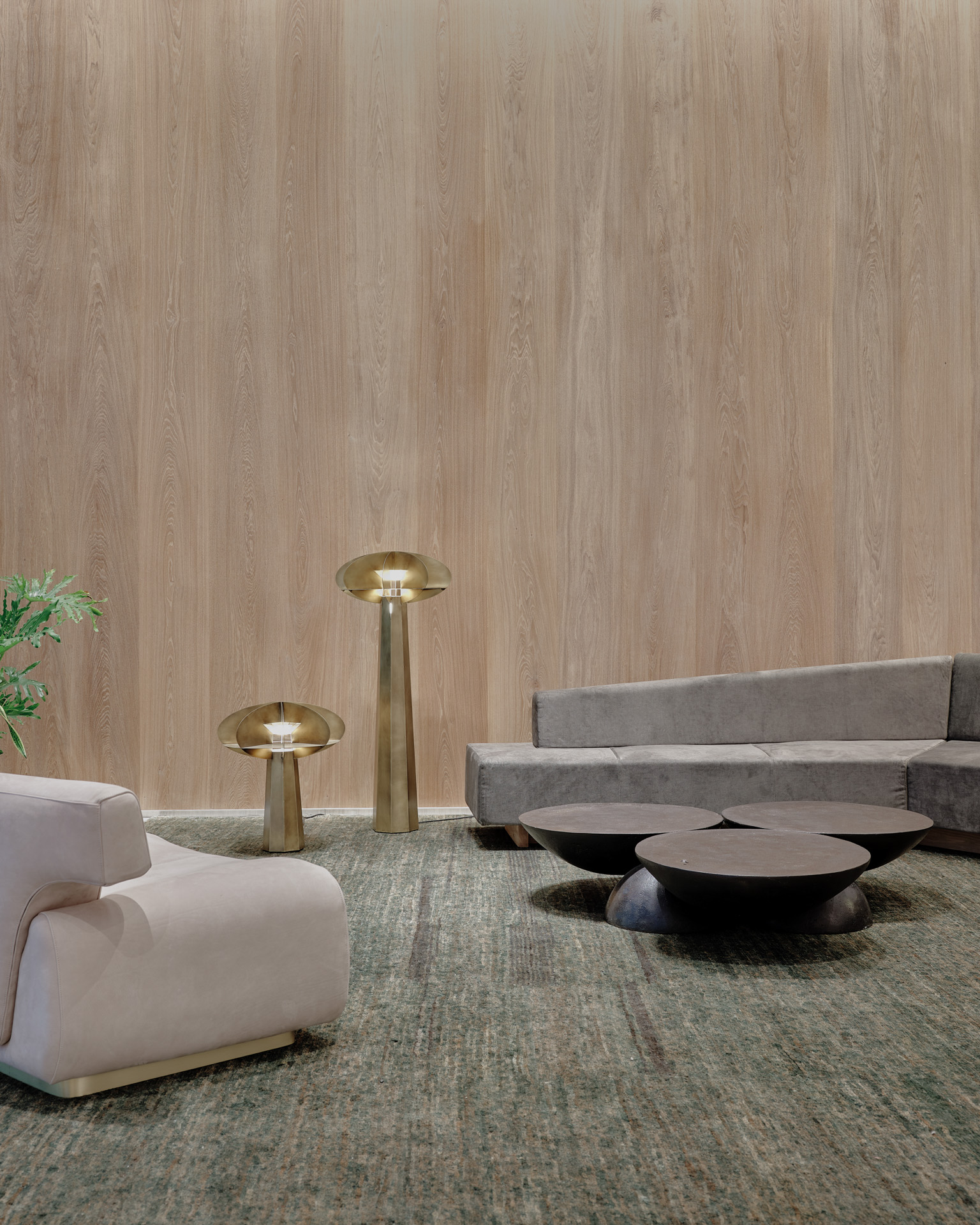
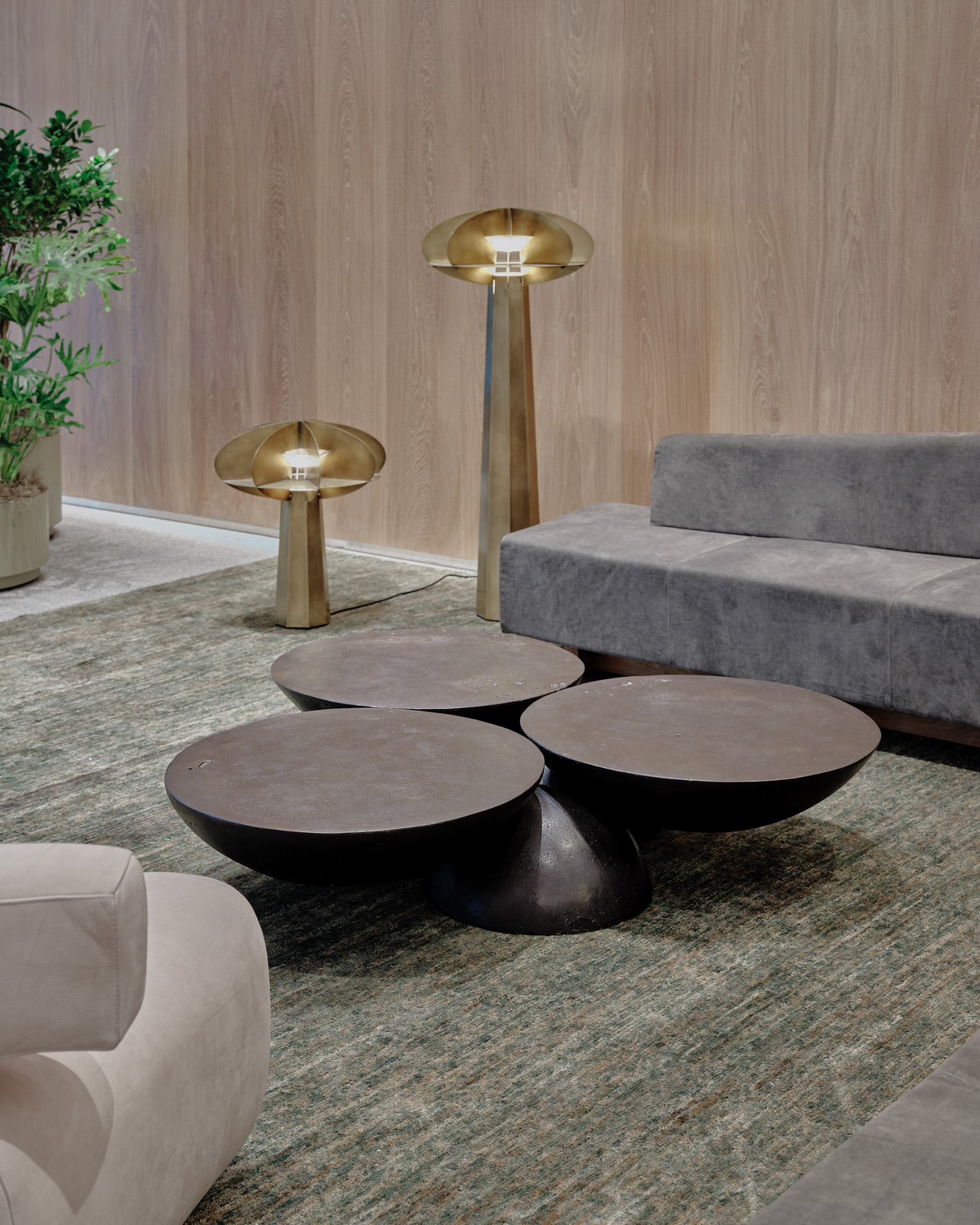
Our Copal Coffee Table Patinated Bronze installed at the Chrysler Building, 2022.
The fundamental step of the process is the creation of molds in fiberglass and silicone of the six volcanic stone hemispheres. From there, wax reproductions are made that faithfully duplicated all the details such as pores, cracks and particularities that make each of the spheres unique. The fragile wax reproductions are encased in a special sand and then heated for approximately 2.5 days. The purpose of this step is to lose the figure in wax in an orderly manner and obtain its negative space in a dehydrated sand. The molten bronze is then poured at a temperature between 900 – 950 °C (1652 – 1742 °F) and after half a day the replicas are cool down.




The sand mold is destroyed to extract the component and proceed to clean it off burrs and any other extra material. Once all the components of the table have been melted, the assembly process begins, this is a neuralgic step to achieve the visual tension and functionality representative of this work. Due to the craftsmanship, each piece contains different details and irregularities, which EWE does not perceive as an error, on the contrary, it aims to preserve and embrace it, making each piece by the studio unique.
